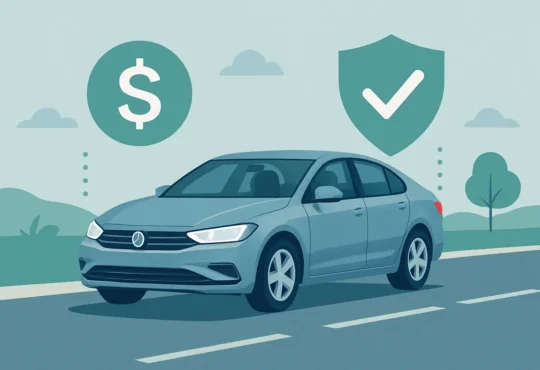Get the best restaurant insurance quotes in 2025. Compare coverage options, costs, and find affordable restaurant insurance for your food service business. Expert tips included.
Running a successful restaurant requires protecting your business with comprehensive insurance coverage. Restaurant insurance quotes can vary dramatically based on your location, restaurant type, and coverage needs. This complete guide will help you secure the best restaurant insurance quotes while ensuring adequate protection for your food service business.
What is Restaurant Insurance?
Restaurant insurance is specialized commercial insurance designed to protect food service businesses from industry-specific risks. Unlike standard business insurance, restaurant coverage addresses unique exposures, including foodborne illness claims, kitchen fires, slip-and-fall accidents, and equipment breakdown.
Why Restaurant Insurance is Essential
The restaurant industry faces significant liability exposure. According to the National Restaurant Association, food service establishments experience higher-than-average workplace injury rates and property damage claims. Restaurant insurance quotes typically range from $3,000 to $10,000 annually, depending on various factors.
Key Restaurant Insurance Statistics:
- 75% of restaurant fires start in cooking equipment
- Food poisoning lawsuits average $75,000 in settlements
- Restaurant workers’ compensation claims are 40% higher than other industries
- Equipment breakdown causes average losses of $15,000 per incident
Types of Restaurant Insurance Coverage
1. General Liability Insurance for Restaurants
General liability insurance protects restaurants against third-party injury and property damage claims. This essential coverage handles slip-and-fall accidents, food poisoning lawsuits, and customer injuries on your premises.
What General Liability Covers:
- Customer slip and fall accidents
- Food poisoning claims
- Property damage to customer belongings
- Advertising injury claims
- Legal defense costs
Average Cost: $500-$1,500 annually for small restaurants
2. Restaurant Property Insurance
Property insurance covers your building, equipment, inventory, and furnishings against fire, theft, vandalism, and natural disasters. For restaurants, this includes expensive commercial kitchen equipment and food inventory.
Property Insurance Coverage Includes:
- Commercial kitchen equipment
- Dining room furniture and fixtures
- Food and beverage inventory
- Point-of-sale systems
- Building improvements (if tenant)
Average Cost: $1,000-$4,000 annually
3. Workers’ Compensation for Restaurant Employees
Workers’ compensation insurance is mandatory in most states and covers medical expenses and lost wages for work-related injuries. Restaurant workers face high injury risks from hot surfaces, sharp knives, and wet floors.
Common Restaurant Worker Injuries:
- Burns from hot equipment or oil
- Cuts from knives and kitchen equipment
- Slips and falls on wet floors
- Back injuries from lifting heavy items
- Repetitive stress injuries
Average Cost: $2-$8 per $100 of payroll
4. Product Liability Insurance
Product liability insurance protects against claims related to foodborne illnesses or contaminated food products. This coverage is crucial as a single food poisoning incident can result in multiple lawsuits.
Product Liability Protection:
- Foodborne illness claims
- Allergic reaction lawsuits
- Contaminated food incidents
- Product recall expenses
- Legal defense costs
5. Cyber Liability Insurance for Restaurants
Modern restaurants process credit card payments and store customer data, making cyber liability insurance increasingly important. This coverage protects against data breaches and cyberattacks.
Cyber Coverage Includes:
- Data breach notification costs
- Credit monitoring for affected customers
- Ransomware attack response
- Business interruption from cyber incidents
- Regulatory fines and penalties
6. Liquor Liability Insurance
Restaurants serving alcohol need liquor liability insurance to protect against claims from serving intoxicated customers. This coverage is often required by law and liquor licenses.
Liquor Liability Scenarios:
- DUI accidents involving intoxicated customers
- Fights or altercations on premises
- Over-serving claims
- Underage drinking incidents
Restaurant Insurance Cost Factors
Understanding factors that affect restaurant insurance quotes helps you anticipate costs and find potential savings opportunities.
Restaurant Type and Size Impact on Insurance Costs
Different restaurant types face varying risk levels, affecting insurance quotes significantly:
Fine Dining Restaurants:
- Higher property values increase premiums
- Alcohol service requires liquor liability
- Higher customer expectations increase liability exposure
- Average annual premium: $8,000-$15,000
Fast Food/Quick Service:
- Lower property values reduce costs
- High employee turnover affects workers’ comp
- Drive-through operations add vehicle exposure
- Average annual premium: $3,000-$7,000
Food Trucks:
- Mobile operations require specialized coverage
- Commercial auto insurance needed
- Lower property exposure reduces costs
- Average annual premium: $2,000-$5,000
Location Factors Affecting Restaurant Insurance Quotes
Restaurant location significantly impacts insurance costs:
High-Risk Locations:
- Urban areas with high crime rates
- Flood-prone or hurricane zones
- Areas with frequent slip-and-fall claims
- High-traffic locations with parking challenges
Low-Risk Locations:
- Suburban strip malls
- Areas with low crime statistics
- Regions with mild weather patterns
- Locations with adequate parking and lighting
Claims History Impact on Insurance Quotes
Your restaurant’s claims history directly affects future insurance quotes:
Factors Insurers Consider:
- Previous liability claims
- Workers’ compensation claim frequency
- Property damage claims
- Food poisoning incidents
- Safety violations or citations
How to Get Restaurant Insurance Quotes
Getting competitive restaurant insurance quotes requires preparation and comparison shopping. The process shares similarities with other insurance shopping strategies, such as learning how to shop car insurance quotes effectively.
Preparing for Restaurant Insurance Quotes
Before requesting quotes, gather essential business information:
Required Documentation:
- Business license and permits
- Financial statements (last 2 years)
- Employee count and payroll information
- Property lease or ownership documents
- Equipment inventory and values
- Previous insurance policies and claims history
- Safety training records
- Food service licenses
Where to Get Restaurant Insurance Quotes
Insurance Brokers: Independent brokers work with multiple insurers and can provide several quotes simultaneously. They offer personalized service and help navigate complex coverage options.
Direct Insurance Companies: Major insurers like Progressive, The Hartford, and State Farm offer direct quotes. While you’ll only get quotes from one company, you may find competitive rates and online convenience.
Online Insurance Marketplaces: Platforms like Simply Business, CoverWallet, and Next Insurance allow you to compare multiple quotes online. These services streamline the comparison process but may lack personalized guidance.
Questions to Ask When Getting Restaurant Insurance Quotes
Essential Questions:
- What specific risks are covered and excluded?
- What are the exact policy limits and deductibles?
- How does the insurer handle restaurant-specific claims?
- Are there available discounts for safety programs?
- What is the process for adding or removing coverage?
- How quickly can claims be processed?
- Does the policy include business interruption coverage?
Best Restaurant Insurance Companies 2025
Top-Rated Restaurant Insurance Providers
The Hartford:
- Excellent restaurant industry experience
- Comprehensive coverage options
- Strong financial ratings (A+ AM Best)
- Specialized food service programs
Progressive Commercial:
- Competitive rates for small restaurants
- Online quote system
- Bundling discounts available
- Good customer service ratings
State Farm Business:
- Local agent support
- Multi-policy discounts
- Strong claims handling reputation
- Customizable coverage options
Travelers Insurance:
- Extensive restaurant experience
- Risk management resources
- Flexible payment options
- Industry-specific coverage
Specialty Restaurant Insurance Companies
Restaurant Insurance Company:
- Industry-specific expertise
- Tailored coverage options
- Risk management support
- Competitive rates for food service
FLIP (Food Liability Insurance Program):
- Specialized food liability coverage
- Quick online applications
- Industry-focused underwriting
- Comprehensive product liability
Restaurant Insurance Cost Savings Tips
Reducing restaurant insurance costs without compromising coverage requires strategic planning and risk management.
Risk Management Programs for Lower Premiums
Safety Training Programs: Implement comprehensive safety training to reduce workers’ compensation claims:
- Kitchen safety protocols
- Proper lifting techniques
- Slip and fall prevention
- Fire safety procedures
- Food safety certification (ServSafe)
Security Measures: Installing security systems can reduce theft and liability claims:
- Security cameras and lighting
- Alarm systems
- Safe cash handling procedures
- Employee background checks
Bundle Restaurant Insurance Policies
Combining multiple coverage types with one insurer often provides significant discounts:
Common Bundling Options:
- General liability + Property insurance
- Workers’ compensation + Commercial auto
- Cyber liability + General liability
- All coverages with one carrier
This approach mirrors strategies used in personal insurance, such as applying 7 tips to get discount car insurance quotes to reduce overall insurance costs.
Restaurant Insurance Deductible Strategies
Higher Deductibles = Lower Premiums:
- Increase deductibles on property coverage
- Consider higher workers’ comp deductibles
- Evaluate self-insuring small claims
- Maintain emergency funds for deductibles
Seasonal Coverage Adjustments
Seasonal Restaurants:
- Adjust coverage for off-season periods
- Reduce workers’ compensation for seasonal staff
- Modify property coverage for seasonal closures
- Consider suspension of operations coverage
Commercial Auto Insurance for Restaurant Delivery
If your restaurant offers delivery services or operates company vehicles, you’ll need commercial auto insurance. Understanding business auto policy requirements ensures proper coverage for your restaurant’s vehicle operations.
Delivery Vehicle Insurance Requirements
Commercial Auto Coverage Types:
- Liability coverage (required by law)
- Collision and comprehensive coverage
- Uninsured/underinsured motorist coverage
- Medical payments coverage
- Cargo coverage for food deliveries
Third-Party Delivery Considerations: When using services like DoorDash or Uber Eats, verify coverage gaps:
- Driver insurance during pickup/delivery
- Food spoilage during transport
- Customer injury during delivery
- Vehicle damage while on delivery
Restaurant Business Interruption Insurance
Business interruption coverage helps restaurants survive temporary closures due to covered perils like fires, equipment breakdown, or natural disasters.
What Business Interruption Covers
Income Protection:
- Lost revenue during closure
- Ongoing expenses (rent, utilities, salaries)
- Extra expenses to minimize loss
- Temporary relocation costs
Common Business Interruption Scenarios:
- Kitchen fires requiring repairs
- Equipment breakdown stopping operations
- Utility outages spoiling inventory
- Natural disasters damaging property
- Government-ordered closures
Calculating Business Interruption Coverage Needs
Factors to Consider:
- Average monthly revenue
- Fixed operating expenses
- Peak season variations
- Time needed for repairs/rebuilding
- Alternative income sources
Food Contamination and Product Recall Coverage
Specialized coverage for food contamination incidents and product recalls protects restaurants from significant financial losses.
Food Contamination Coverage
What’s Covered:
- Contaminated food disposal costs
- Lost revenue from closure
- Decontamination expenses
- Regulatory compliance costs
- Public relations expenses
Common Contamination Scenarios:
- Refrigeration system failures
- Power outages spoiling inventory
- Cross-contamination incidents
- Supplier-related contamination
- Equipment malfunctions
Product Recall Insurance
For restaurants with retail products or catering operations:
- Recall notification costs
- Product retrieval expenses
- Disposal and destruction costs
- Lost income during recall
- Crisis management support
Restaurant Insurance Claims Management
Effective claims management protects your restaurant’s insurance rates and ensures quick resolution of incidents.
Claims Reporting Best Practices
Immediate Actions:
- Ensure safety of customers and employees
- Document the incident thoroughly
- Notify insurance carrier immediately
- Preserve evidence and witness statements
- Avoid admitting fault or liability
Documentation Requirements:
- Incident reports with photos
- Witness contact information
- Medical reports for injuries
- Police reports when applicable
- Repair estimates and invoices
Working with Insurance Adjusters
Tips for Successful Claims:
- Cooperate fully with investigations
- Provide requested documentation promptly
- Keep detailed records of all communications
- Review settlement offers carefully
- Consider public adjuster for large claims
Legal Requirements for Restaurant Insurance
Understanding mandatory insurance requirements helps ensure compliance and avoid penalties.
State-Specific Insurance Requirements
Commonly Required Coverage:
- Workers’ compensation (mandatory in most states)
- Commercial auto (if operating vehicles)
- Unemployment insurance
- Disability insurance (some states)
Liquor License Requirements: Most states require liquor liability insurance for alcohol service:
- Minimum coverage amounts vary by state
- Continuous coverage required for license maintenance
- Additional bonds may be required
Local Licensing Requirements
Municipal Requirements:
- Proof of insurance for business licenses
- Certificate of insurance for permits
- Additional coverage for special events
- Public liability minimums
Technology and Modern Restaurant Insurance
Modern restaurants face new risks from technology integration and changing business models.
Point-of-Sale System Protection
Technology Coverage Needs:
- Equipment replacement costs
- Software and data restoration
- Business interruption from system failures
- Cyber liability for stored data
Online Ordering and Delivery Risks
Emerging Coverage Needs:
- Third-party delivery platform gaps
- Online ordering system failures
- Customer data protection
- Social media liability
Social Media and Reputation Management
Digital Age Risks:
- Online review manipulation claims
- Social media privacy violations
- Digital advertising injury
- Cyber bullying incidents
Environmental and Sustainability Coverage
As restaurants focus on sustainability, new insurance needs emerge.
Green Building Coverage
Sustainable Restaurant Protection:
- LEED certification replacement costs
- Green building material premiums
- Energy-efficient equipment coverage
- Environmental liability
Waste Management Liability
Environmental Risks:
- Improper waste disposal claims
- Grease disposal violations
- Recycling contamination issues
- Composting operation liability
Choosing the Right Restaurant Insurance Coverage
Selecting appropriate coverage requires balancing protection needs with budget constraints.
Coverage Adequacy Assessment
Key Considerations:
- Maximum potential loss scenarios
- Regulatory compliance requirements
- Contractual insurance obligations
- Risk tolerance and financial capacity
Working with Insurance Professionals
Selecting the Right Agent/Broker:
- Restaurant industry experience
- Multiple carrier relationships
- Claims advocacy support
- Risk management resources
Building Successful Relationships:
- Regular coverage reviews
- Prompt communication of changes
- Participation in risk management programs
- Loyalty program benefits
Restaurant Insurance Trends and Future Considerations
The restaurant insurance landscape continues evolving with industry changes and emerging risks.
Emerging Risks and Coverage Needs
Future Considerations:
- Pandemic business interruption coverage
- Ghost kitchen operations
- Artificial intelligence liability
- Autonomous delivery vehicles
- Climate change impacts
Insurance Technology Improvements
Industry Innovations:
- Real-time risk monitoring
- Predictive analytics for claims
- Digital claims processing
- Usage-based insurance models
Conclusion: Securing the Best Restaurant Insurance Quotes
Obtaining comprehensive restaurant insurance at competitive rates requires understanding your risks, comparing multiple quotes, and working with experienced insurance professionals. Restaurant insurance quotes vary significantly based on your specific operations, location, and risk management practices.
Key Takeaways for Restaurant Owners:
- Compare quotes from multiple insurers annually
- Implement strong risk management programs
- Bundle coverage for potential discounts
- Work with agents experienced in restaurant insurance
- Review coverage regularly as your business grows
Action Steps:
- Assess your current insurance coverage gaps
- Implement safety and training programs
- Request quotes from at least three insurers
- Compare coverage details, not just prices
- Establish relationships with qualified insurance professionals
The investment in proper restaurant insurance coverage provides essential protection for your business investment while allowing you to focus on delivering exceptional dining experiences. Take time to evaluate your insurance needs thoroughly, obtain competitive quotes, and work with professionals who understand the unique challenges facing restaurant operators in today’s dynamic market.
Remember that the cheapest restaurant insurance quote isn’t always the best value. Focus on finding comprehensive coverage from financially stable insurers with excellent claims handling reputations. This approach ensures your restaurant is properly protected against the various risks inherent in food service operations while maintaining competitive insurance costs.
Thank you for visiting our website, TechsBucket. If you liked the article, then share it with others.


